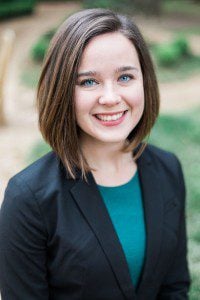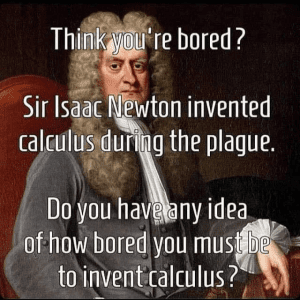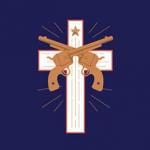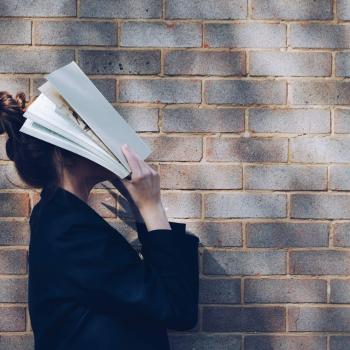 I am so pleased to welcome back Lynneth Miller Renberg. Lynneth is an assistant professor of history at Anderson University in Anderson, SC. She teaches a range of courses, including classes on medieval Europe, Europe in the Reformation, and the history of women in the church. She is currently working on a monograph on dance, sacrilege, and gender in late medieval England and an edited collection on the tale of the cursed dancing carolers.
I am so pleased to welcome back Lynneth Miller Renberg. Lynneth is an assistant professor of history at Anderson University in Anderson, SC. She teaches a range of courses, including classes on medieval Europe, Europe in the Reformation, and the history of women in the church. She is currently working on a monograph on dance, sacrilege, and gender in late medieval England and an edited collection on the tale of the cursed dancing carolers.
Among the many pandemic-related memes that my students shared in our Canvas courses this spring, this one stood out to me. Think you’re bored? Sir Isaac Newton invented calculus during the plague. Do you have any idea of how bored you must be to invent calculus?
Although other memes were wittier, this meme resonated not only with our current experiences but with our course material. In reflecting back over the spring semester and looking forward to the fall, the discussions around the content of this meme stand out to me most.
As my freshman honors classes shifted from spring break to what my students called “coronacation” (a week of extended break to prepare for the shift to online classes) and then finally to an online format, the first material we encountered in our new online reality was a unit on the Scientific Revolution: the thinkers, paradigm shifts, and debates around science, medicine, and empiricism in the early modern era.
As planned according to the course syllabus, we read through Dana Sobel’s Galileo’s Daughter and talked about early modern responses to the plague. We discussed how despite Galileo’s reliance on empiricism in his work on the heavens, when it came to earthly plague, he and his early modern peers responded with fear and superstition. We read through William Harvey’s treatise On the Circulation of the Blood and talked about the acquisition of knowledge through experimentation. And as we read excerpts from Newton’s works, we talked about how we know things: what knowledge we can trust and what data can be trusted.
All of these conversations were initially meant to push students towards discussions about paradigm shifts in how we know things, towards a consideration of the historical changes from the time period and their ramifications for science and knowledge. But in this most difficult of seasons, these sources and topics took on new meaning. Engaging with Galileo’s life and the recurrent threats of plague that he encountered led to discussions about our own societal responses: responses of fear, of feeling, of seeking individual safety. Reading Harvey’s work and considering the acquisition of knowledge through experimentation led to conversations about medical ethics in times of emergency: about how to ethically approach testing on humans in rushed vaccine trials when the alternative is greater loss of human life, about the weighing of human life in choosing who receives PPE or treatment and who does not.
While our discussion of Newton’s works and of the move towards empiricism led to productive and engaging discussion about fake news, alternative facts, and other unfortunate realities of the modern pandemic, it also led to notes of hope.
Student presentations on Newton’s life and context highlighted with some excitement the fact that Isaac Newton was no stranger to the struggles my students were facing. Newton was well acquainted with leaving university because of disease, and with the challenges brought about by isolation, by the loss of resources meant to help support learning, and by the time to focus on education: the very reason one goes to university in the first place.
This familiarity, both in content and context, provided encouragement for students dispersed around the country, facing the inability to connect with their peers and fears about the long-term educational losses that might come from the disruption of the spring semester. For students confronting the unknown in new ways this spring, the chance to explore questions about fear, about communal good, about personal cost, and about the ethics of catastrophe and of knowledge through texts that are both removed from their current lives yet related provided a way to process their own fears and questions. These readings provided encouragement that, despite a freshman year that has been very different than they’d have hoped, there could be good. And there can be learning. While their world may look different than they’d hoped, their search for knowledge does not need to end.
Discussing Newton, particularly his use of the time away from university to do foundational work in mathematics, could have easily led students to put more pressure on themselves. Comparisons to Newton could have helped drive the unhealthy “do more, be better” discourse that advocates for using your pandemic time “productively.” But pairing Newton with Sobel’s thoughtful presentation of Galileo gave students space to acknowledge the disruption. To grieve what was lost and to acknowledge difficulty. To discuss their fears while still providing a note of hope.
At the end of the Canvas video presentations, Zoom classes, and FlipGrid discussions, the consensus from my students was that they are not the first to go through similar loss, disruption, and uncertainty. Studying history gave them comfort; it gave them a needed, and probably unexpected, hope.
In thinking over the spring, these moments of learning– in which we as a class grappled with fear, with loss, with disruption, and with the best way forward– are the ones that stand out to me most. Regardless of what that way forward looks like, my students know we are not walking it alone.













